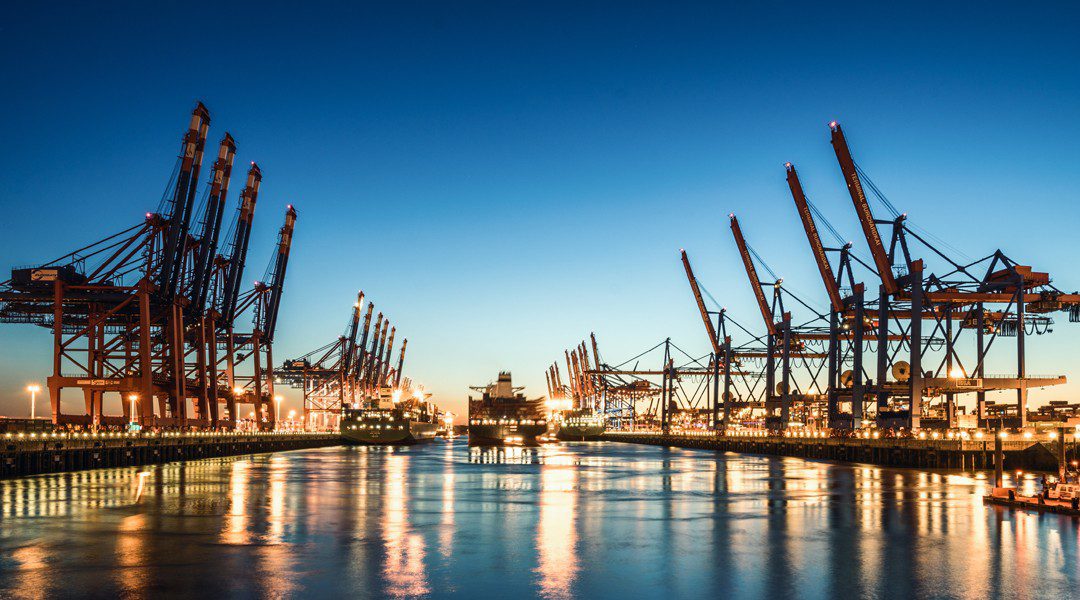In what could prove to be bad news for Indian exporters, Yemen’s Iranian-backed Houthis are extending their attacks on merchant shipping hundreds of miles out into the wider Indian Ocean, with international maritime experts reportedly warning of a new round of threats from Yemen after the Houthis conducted a drone strike against a container vessel well beyond the Red Sea last week.
The drone attack on the MSC Orion on April 26 shows that the Houthis are now threatening merchant shipping hundreds of miles beyond the Red Sea and out into the wider Indian Ocean, the Financial Times (FT) reported on Thursday, citing maritime officials and experts.
The MSC Orion attack came after the Houthis had issued a threat in March that they would extend their attacks to the wider Indian Ocean, including targeting merchant vessels sailing around the Cape of Good Hope between Europe and Asia.
ALSO READ: Yemen’s Houthis launch drone attack on four ships in Indian Ocean, Red Sea
With the Houthis having launched scores of attacks since November on commercial ships, a number of shipping companies had switched to this longer route to protect their ships from Houthi missile and drone strikes in and around the approaches to the Suez Canal in the Red Sea and the Gulf of Aden, said the FT report.
Citing experts, the report said that the Houthi attack on the MSC Orion had expanded the group’s campaign against Western ships and the maritime area under risk to a previously unaffected and large part of the north-west Indian Ocean. According to the FT report, the maritime safety and security head of Bimco, an association of shipowners, said that some shipping companies would respond by rerouting ships, especially those with links to Israel, the United States or the United Kingdom, further from Yemen to avoid the increased threat.
Bad news for Indian exporters?
In April, shipping experts and exporters were reportedly worried that freight charges and insurance premiums for ships sailing on global routes would surge further if the mounting tensions between Iran and Israel spilled into the Red Sea.
Coming to the present, their worries could increase if the report of Houthis extending their attacks hundreds of miles out into the wider Indian Ocean prove to be true and become a regular threat.
The threat is seen high for ships bound for western European countries and the US.
Citing sector watchers, the Economic Times had reported in April that disruptions and capacity constraints had caused freight rates to jump by close to $100 per container for vessels plying through the Red Sea. The report added that war risk insurance premium, which stood at about 0.05 per cent before the crisis began, had jumped to between 0.75 per cent and 1 per cent of the insured value of the vessel by April.
Explaining that these high premiums were a consequence of Houthi activity in the region, Container Shipping Lines Association Executive Director Sunil Vaswani had told the financial daily that the premiums could increase even further.
Highlighting that shipping a standard size container to Europe in April cost $2,500, five times more than the $500 charge before October 2023, Engineering Export Promotion Council of India Chairman Arun Kumar Garodia had told the financial daily that the costs would escalate if the Red Sea crisis were to worsen.
Heightened risk from the Houthis
Owned by Geneva-based Mediterranean Shipping Company (MSC), the MSC Orion was hit by a drone strike between 300 to 400 nautical miles south-east of the Horn of Africa, said the FT report, citing the UK’s Maritime Trade Operations office in Dubai. MSC operates the world’s biggest container ship fleet.
The possible expansion of attacks comes after the group’s strikes had decreased in frequency after an Iranian-owned ship, believed to be providing the group targeting information, sailed back to Iran in early April.
The Houthis have claimed attacks on other ships in the Indian Ocean in recent weeks. However, the MSC Orion attack was the first such attack recognised by an international organisation engaged in safeguarding the region’s vital sea lanes.
EOS Risk, a UK-based consultancy, issued a bulletin following the MSC Orion attack, reportedly warning customers that Houthi drones had a range of up to 2,000 kilometres.
The MSC Orion is the sister ship of the MSC Aries, which was seized by Iran’s Islamic Revolutionary Guard Corps on April 13 in the Strait of Hormuz. The MSC Aries was operating the same “Himalaya Express” service between Europe and Sri Lanka and India.
Yemen-based Houthi rebels have been targeting ships in the Red Sea and surrounding waters since November over the Israel-Hamas war.
The situation around the Bab-el-Mandeb Strait, a crucial shipping route for traders connecting the Red Sea and the Mediterranean Sea to the Indian Ocean, worsened in December due to these attacks.
As a result, shipping costs have jumped and consignments are taking longer to reach Europe and the US, with the ships taking the Cape of Good Hope route, encircling Africa. The longer route has resulted in delays of up to 20 days and higher freight and insurance costs.
Source: Business Standard





